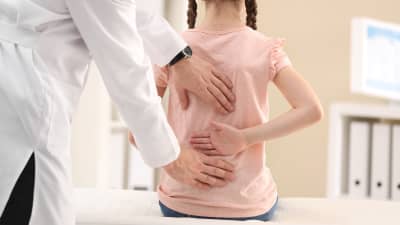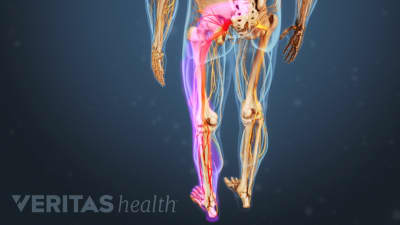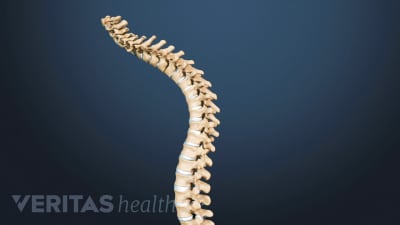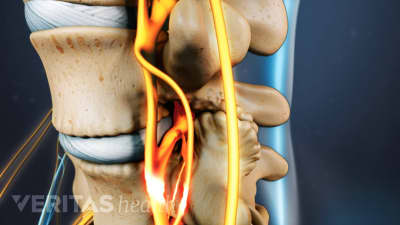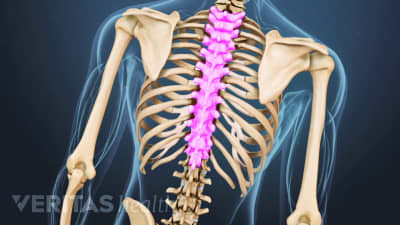Spinal arthritis - also called degenerative joint disease - is the breakdown of the cartilage between the facet joints in the spine, leading to low back pain and/or leg pain.
Conditions
Kids and teens may experience back pain too, stemming from something simple like aggressive play or an overfull backpack, or something more serious like a tumor or infection.
Back pain that lasts longer than 3 months is considered unlikely to heal on its own and different treatment paths are considered in order to get pain relief.
Most patients with degenerative disc disease will experience low-level but continuous back pain that will occasionally intensify and can become severe.
Clinical depression often accompanies chronic back pain, or can lead to increased back pain, and needs to be included as part of an overall treatment plan.
A herniated disc occurs when the inner gel in the disc leaks out and puts pressure upon a spinal nerve, often leading to leg pain or arm pain.
When the nerves exiting the spine in the lower back are impinged, the pain may extend down the leg as a general pain, tingling, numbness, or weakness.
There are many conditions that affect the lower back - this section of Spine-health features in-depth information about the conditions that cause lower back pain, including the most common and less likely conditions and lower back issues.
The neck can be afflicted with spinal stenosis, herniated disc, osteoarthritis, degenerative disc disease, and also by muscle strain, whiplash or other conditions.
Most fractures in the spine are caused by osteoporosis, which is a condition in which bones lose structural integrity.
The bodily changes during pregnancy make back pain a common development. Certain treatments are recommended for most pregnant women to prevent back pain.
The joint between the base of the spine and the hip does not normally have much movement, but any change in the joint may cause lower back pain and/or leg pain.
The sciatic nerve exits the lumbar spine and carries information between the brain and the legs. When a lower back problem affects the sciatic nerve, pain can radiate down the leg and into the foot.
An abnormal side-to-side curvature of the spine, known as scoliosis, develops mostly in adolescents, but can also be a byproduct of aging and arthritis.
Besides scoliosis, there are other conditions which may cause a change in the normal structure of the spine.
Spinal stenosis is a condition in which parts of the spine narrows and can lead to compression of a spinal nerve or the spinal cord in the neck.
A tumor in the spine can cause pressure on the nerves in the spine similar to many other spinal conditions.
Spinal anatomy is a complex construct of nerves, bones, ligaments, tendons, muscle and joints. Learning about spinal anatomy helps to understand specific back pain conditions or symptoms.
Spondylolisthesis occurs when one vertebra in the spine slips forward over the one below it, causing lower back pain and/or leg pain. It most commonly occurs in the lower levels of the spine.
Certain sports and activities are likely to cause or worsen back pain due to repetitive motions and added strain on the spine.
Pain from the thoracic spine is less common than from the cervical spine (neck) or lumbar spine (lower back). Muscular issues and joint dysfunctions are the most common problems in upper back.


